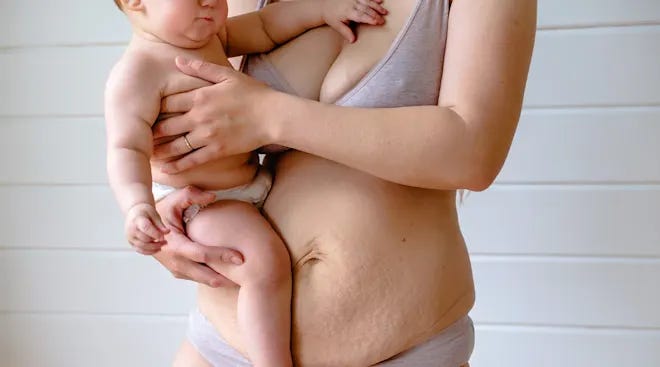Why Is Chinese Postpartum Confinement (坐月子 Zuo Yue Zi) Such a Big Deal?
Chinese postpartum confinement, or Zuo Yue Zi (坐月子), is a fascinating tradition that’s deeply rooted in Traditional Chinese Medicine (TCM). Compared to Western cultures, where postpartum recovery often feels more relaxed, Zuo Yue Zi is a structured, month-long practice aimed at helping new moms recover and safeguard their long-term health.
But why is it such a big deal?
Let’s dive in in 3 parts! Diet, Hygiene and Activities!
What Is Zuo Yue Zi?
For those unfamiliar, Zuo Yue Zi directly translates to “sitting the month.” It’s a period where new moms are encouraged to stay home, rest, and follow specific customs and rituals believed to promote recovery and future well-being. The idea is that postpartum is a critical time of great change, and proper care can set the stage for better health down the road.
As one interviewee in a study on postpartum practices put it:
“Some women have good health, but they do not do the postpartum period well, and their health becomes poor. Other women with poor health do the postpartum period well, and their health becomes better. It is a period of great change, so we do not want to take any risk.”
While there aren’t enough longitudinal studies to definitively prove the benefits of every Zuo Yue Zi ritual, many practices align surprisingly well with modern science. Let’s explore some of the most popular ones and see how they hold up.
The Postpartum Diet: Warm, Nourishing, and Protein-Packed
One of the cornerstones of Zuo Yue Zi is the emphasis on eating “hot” or warming foods and avoiding “cold” foods. For example, in Guangdong, there’s a tradition of eating sweetened vinegar and ginger-braised eggs with pork knuckle (also known as 豬腳薑).
Why? According to TCM, ginger “increases warmth and dispels Wind Cold” (laugh all you want, but hear us out first!), and pork knuckle “replenishes blood and invigorates circulation” (another chuckle-worthy translation). But here’s the thing: modern science actually backs some of this up.
- Ginger: Research shows ginger is as effective as ibuprofen in relieving postoperative pain and inflammation.
- Pork Knuckle: Packed with collagen, it’s been shown to improve bone density, wound healing, and tissue regeneration.
- Sweetened Vinegar: Often infused with circulation-promoting herbs, it’s a nutrient-dense addition to the diet.
Back in the day, when protein sources were scarce, dishes like these were a practical way to provide moms with the nutrients needed for breastfeeding and recovery. Plus, avoiding “cold” foods—both in temperature and uncooked forms—makes sense when you consider how cold temperatures can cause muscle contractions (hello, stomach discomfort!) and how raw foods might upset a sensitive postpartum gut.
So, while the TCM explanations might sound a little quirky, the dietary principles of Zuo Yue Zi are surprisingly grounded in logic. Food really is the best medicine!
Postpartum Hygiene: To Wash or Not to Wash?
Now, this one might make you go, “Ew.” Traditionally, new moms were advised not to bathe or wash their hair during Zuo Yue Zi. The reasoning? After childbirth, a woman’s pores are believed to be more open, making her vulnerable to “dampness,” “cold,” and “wind,” which could lead to issues like headaches, arthritis, or rheumatism later in life.
But let’s put this in context. Back in ancient times, people washed with cold river or well water, which wasn’t exactly clean by modern standards. Today, we have warm, clean water and hairdryers! As long as you shower with warm water and dry off quickly, you’re probably fine.
That said, there’s a parallel here to the debate over ice baths after a marathon. Some studies suggest post-exercise cooling can reduce soreness but may hinder recovery by slowing nutrient uptake. Similarly, while a warm shower might feel great postpartum, an ice-cold plunge? Maybe not the best idea.
Behavioral Precautions: Rest, Rest, and More Rest
Another key aspect of Zuo Yue Zi is staying indoors, avoiding housework, and resting as much as possible. The idea is to protect new moms from “wind” and “cold,” which are believed to cause long-term issues like arthritis, poor immunity, and chronic aches.
While many TCM practitioners support the idea of rest, they don’t necessarily agree with the extreme version of this belief (like staying in bed 24/7). Instead, they emphasize balance—some light activity to promote circulation and prevent stiffness, but plenty of rest to aid recovery.
And let’s be real: after giving birth, most moms are exhausted from sleepless nights and round-the-clock feedings. As one mom put it:
“During this month, I wanted to sleep a lot because every two hours I had to feed the baby. I had to breastfeed 2 or 3 times a night.”
So, while the traditional advice to “stay in bed” might feel a bit over the top, the core idea of prioritizing rest and recovery is spot on.
The Takeaway
At its heart, Zuo Yue Zi is about honoring the immense physical and emotional changes that come with childbirth. While some practices might seem outdated or lost in translation, many are rooted in practical wisdom that aligns with modern science.
Whether it’s nourishing foods, mindful hygiene, or simply taking time to rest, the principles of Zuo Yue Zi remind us that postpartum care is about more than just bouncing back—it’s about setting the foundation for long-term health and well-being.
So, while Western cultures might not fully “get” the whole Zuo Yue Zi, there’s still a lot we can learn from this ancient tradition. After all, when it comes to postpartum recovery, a little extra care never hurts!





